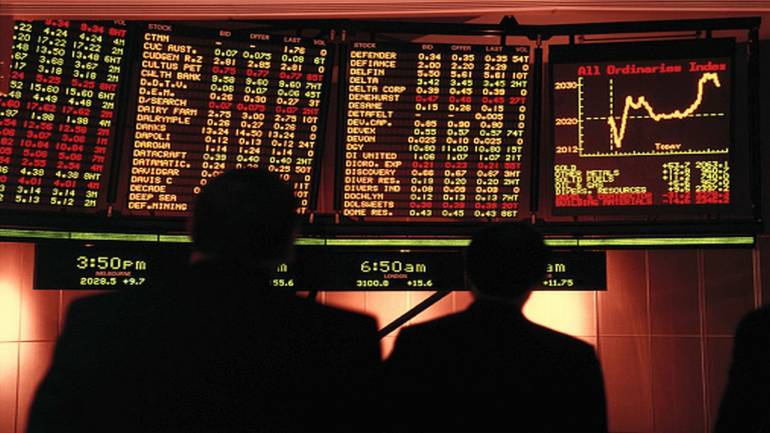In Tokyo, the Nikkei 225 slipped below the flat line to trade lower by 0.12 percent. Financials, oil producers and shippers gained, but declines were seen in consumer goods sectors.
Asian stocks were narrowly mixed on Wednesday after global markets advanced overnight as recent trade fears waned.
In Tokyo, the Nikkei 225 slipped below the flat line to trade lower by 0.12 percent. Financials, oil producers and shippers gained, but declines were seen in consumer goods sectors.
Across the Korean Strait, the Kospi edged up by 0.17 percent while the junior Kosdaq advanced 0.91 percent.
Greater China markets traded moderately higher, with Hong Kong's Hang Seng Index tacking on 0.45 percent on the back of gains in the energy, materials and technology ectors. The Shanghai composite drifted higher by 0.21 percent and the smaller Shenzhen composite added 0.18 percent.
Meanwhile, in Sydney, the S&P/ASX 200 was off by 0.34 percent as most subindexes traded in the red, although energy and materials rose. The heavily weighted financials sector slid 0.82 percent.
Sharp gains seen overnight on Wall Street failed to translate during the Asian session, although markets in the region were slightly higher on the whole. MSCI's broad index of shares in Asia Pacific excluding Japan was last up 0.21 percent.
Asian and European markets had rallied on Tuesday after traders saw hope of avoiding a trade war in Chinese President Xi Jinping's remarks about further opening up China's economy.
The policy plans outlined by Xi in his Tuesday speech included reducing tariffs for autos and improving intellectual property rights protection. China wants to increase its imports and would accelerate plans to open up the financial services sector, Xi claimed.
Those comments, which allayed some fears of a US-China trade war, boosted market sentiment in the last session, even though analysts said the measures highlighted by Xi were largely in line with his previous policy messaging.
"Seeing is believing of course ... but for now the market chooses to believe that Xi's words will prove to be more than mere platitudes in coming months," Ray Attrill, head of foreign exchange strategy at National Australia Bank, said in a note regarding stocks' overnight advance.
Against the safe-haven Japanese currency, the dollar mostly held onto gains made against the yen amid the improvement in investor confidence overnight. The dollar traded at 107.12 at 9:35 a.m. HK/SIN, compared to levels around the 106.9 handle seen before Xi's Tuesday speech.
The Australian dollar was supported by the pick up in market sentiment and last traded at USD 0.7760.
The Aussie dollar was mostly steady despite China consumer inflation easing last month. Reuters reported that China's consumer price index in March came in at 2.1 percent, below the 2.6 percent gain expected.
Meanwhile, the dollar index, which tracks the dollar against the six currencies, was steady at 89.588 after slipping in the last session on the stronger euro.
On the commodities front, oil prices were mostly steady after jumping more than 3 percent in the previous session.
US West Texas Intermediate edged higher by 0.02 percent to trade at USD 65.52 per barrel and Brent crude futures were off by 0.17 percent at USD 70.92.
In individual stocks, shares of Japan's SoftBank Group bounced 4.94 percent after news that Sprint, which is owned by SoftBank, has embarked once more on merger talks with T-Mobile. The latest attempt comes after Sprint and T-Mobile ended merger talks in November.
On the economic front, Japan core machinery orders rose 2.1 percent in February compared to the month before, topping a median forecast of a 2.5 percent drop in a Reuters survey.
Ahead, markets await the release of US CPI and minutes from the Federal Reserve during US hours.